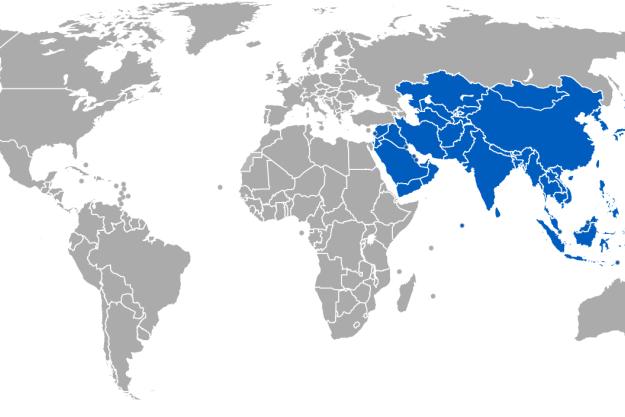
The Organisation for the Prohibition of Chemical Weapons (OPCW) co-hosted with the Government of the State of Qatar the Fifth Regional Meeting of National Authorities of States Parties in Asia; in Doha, from 4 to 6 September 2007. The meeting was attended by 65 participants from 26 States Parties.
In his message to the meeting, H.E. Ambassador Rogelio Pfirter, OPCW Director-General, thanked the State of Qatar for co-hosting this important meeting and commended it for taking steps towards effective implementation of the provisions of the Convention. He also noted that “Such meetings provide a valuable opportunity for National Authorities from the region to come together to share experiences, develop contacts with other National Authorities, and to enhance sub-regional and regional cooperation for the full and effective implementation of the Convention. For the Technical Secretariat, the coming together of National Authorities from Asia is an important occasion to work with them for the common goal of implementing the Convention.”
In his message, the Director-General Pfirter further noted that “with the adoption of the Action Plan on Universality in October 2003, progress in Asia has accelerated. Today, there are only two non-States Parties —Myanmar and the Democratic People’s Republic of Korea. Contact with the authorities in Myanmar has been established and I am confident that Myanmar will join the OPCW family at an early date. To that end, it is important that we can rely on the support and cooperation of those who know the region best to use their relations with the Myanmar authorities to achieve this objective. The OPCW will continue with its efforts to engage the Democratic People’s Republic of Korea and seek to convince them that by joining the OPCW, they are contributing to their own security as well as reinforcing international peace and security.”
Looking back to the inception of the Organisation, the Director-General Pfirter added “this year the OPCW is celebrating the tenth anniversary of the entry into force of the Convention. In a relatively short period, the OPCW has many accomplishments and achievements of which we can all be proud. These are the result of collective efforts on the part of all Member States and the Technical Secretariat. For its part, the Technical Secretariat has always received unstinting and full support from Member States to carry out its implementation-related activities.
Opening the meeting, H.E. Major General Hamad bin Ali Al-Attiyah, Chief of Staff of the Qatar Armed Forces, congratulated the Director-General of the OPCW and the States Parties on the 10th anniversary of the Entry into Force of the Convention. He said that “to comply with our obligations under the Convention, our National Authority was established on 4 October 2004. Since it took up its responsibility, the National Authority of Qatar has played an important role in the area of awareness raising and coordination. It has organised numerous training courses and workshops which have facilitated significantly the task of the stakeholders”. He further noted that “the Law No 17 of 2007 on the Prohibition of Chemical Weapons was promulgated last July. This reflects the importance the State of Qatar attaches to the enforcement of the CWC.”
The meeting served as a forum in which States Parties in the region presented their need for assistance and indicated what assistance they could offer to other States Parties. It also provided an opportunity to discuss issues relating to the identification of declarable Article VI activities and the enhanced quality of the declarations submitted by States Parties, as well as the role of custom authorities in carrying out the import and export provisions of the Convention. Bilateral meetings with 20 of the 26 participating States Parties were also held.
PR91 / 2007
